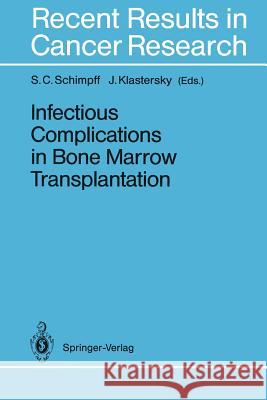Infectious Complications in Bone Marrow Transplantation » książka
Infectious Complications in Bone Marrow Transplantation
ISBN-13: 9783642849015 / Angielski / Miękka / 2012 / 284 str.
As the demographics of the population shift toward an increasingly aged society, the number of individuals with cancer increases and with it the need to give the most comprehensive possible health care delivery. Although much has been written about the specific therapy best suited for the various types of cancer and about the basic and clinical research which has dramatically improved treat- ment, overall patient care requires attention to supportive care, which includes such items as pain management, the use of blood products, nutrition, and psychosocial needs. Yet infection remains the leading cause of death in cancer patients and is a major cause of morbidity and hospitaliza- tion, making it a major aspect of the supportive care of cancer patients. It therefore deserves a full exposition. Bone marrow transplantation is increasingly being utilized as part of a therapeutic modality in the treatment of cancer patients. Transplantation patients are at such a particularly high risk of developing a wide variety of different types of infection, that they inevitably can serve as an excellent framework for discussion of all the types of infections that occur during the treatment of cancer. The patient undergoing allogeneic bone marrow transplantation is at particularly high risk of infection due to the major perturbations of host defenses, which include granulo- cytopenia, cellular immune dysfunction, humoral immune dysfunction, blood product transfusions, and vascular access devices. Each of these perturbations results in a different set of infectious disease problems.











